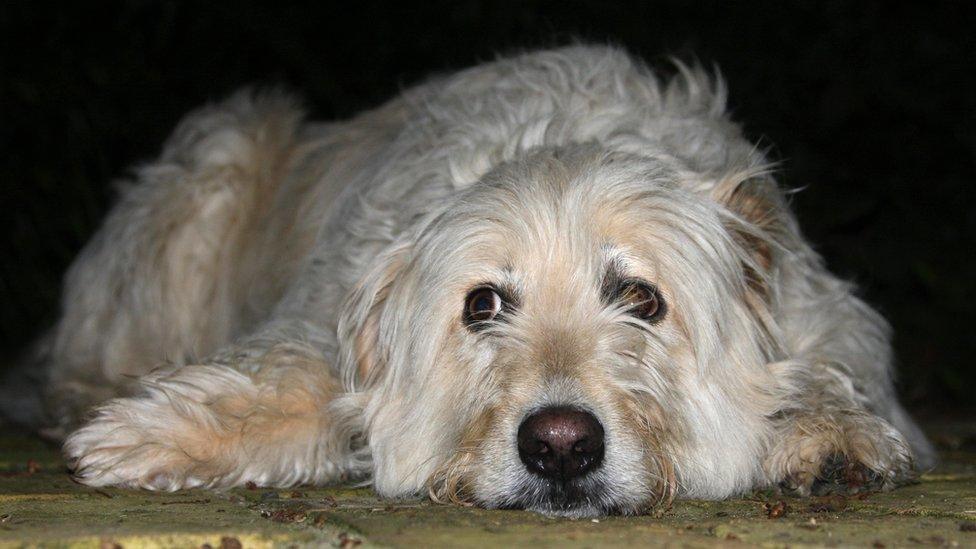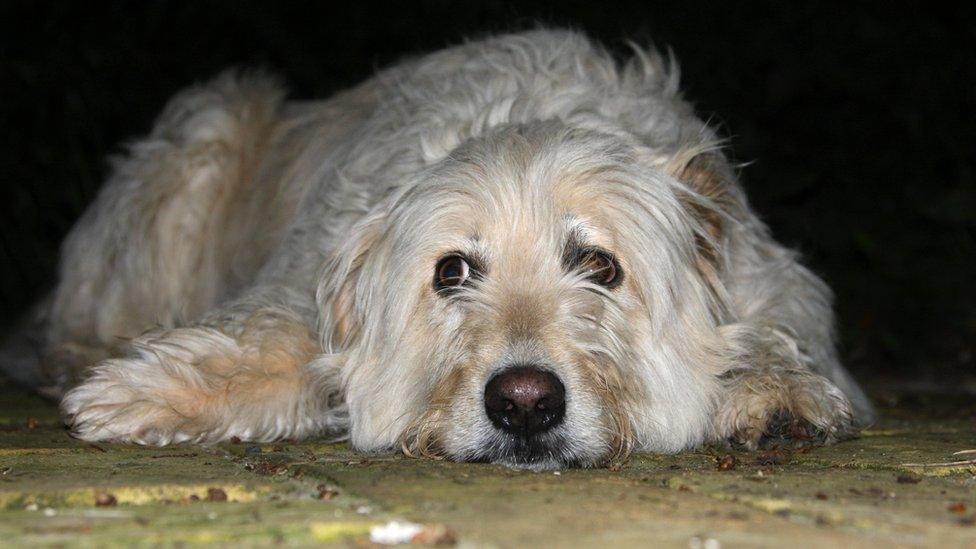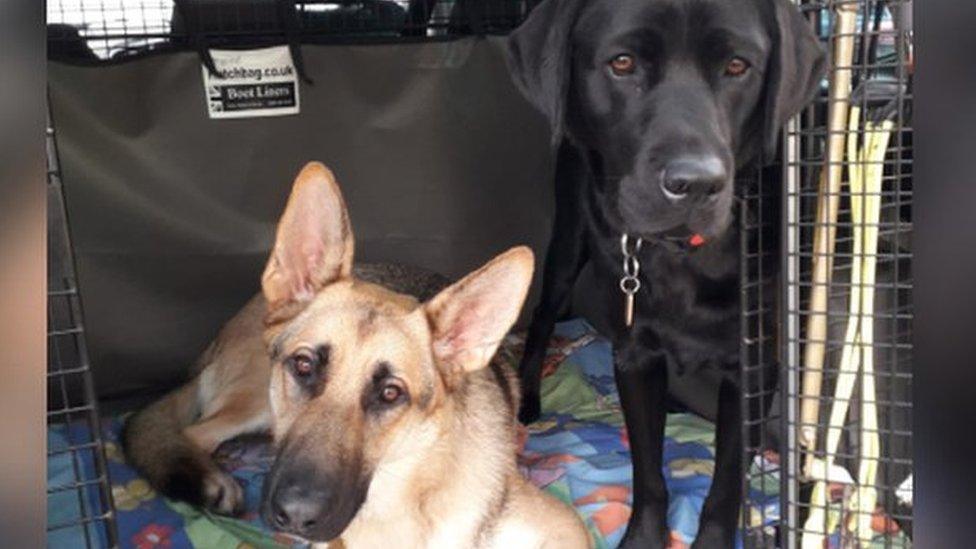Study to investigate impact of fireworks noise on dogs
- Published

Dr Podwinska said there were "indications that dogs may be sensitive to sounds that humans can't hear"
A study into the effect fireworks and other loud noises have on dogs will help generate "evidence-based advice" for owners, an academic has said.
Research will be carried out by the University of Salford and charity Dogs Trust (DT) on New Year's Eve.
The university's Dr Zuzanna Podwinska said there was "surprisingly little information or research into this area, so it is a study of vital importance".
She added that reducing distress in canines "can only be a good thing".
A DT representative said the research would combine the university's "specialist knowledge in acoustics and the charity's expertise in dog behaviour" to analyse data from the public.
They said the "groundbreaking research will aim to provide an in-depth understanding of the relationship between dog behaviour and features of fireworks, as well as the methods that dog owners use to try to mask the sound of fireworks".
The overall aim was to give DT's canine behaviour experts "valuable insight for guidance to dog owners", they added.
'In-depth understanding'
Dr Podwinska, who works at the university's Acoustics Research Centre, said there were "indications that dogs may be sensitive to sounds that humans can't hear, so we are interested to find out if it's not just the loudness of the fireworks or their sound level, but other acoustic characteristics".
"Dogs can get very distressed by fireworks so anything we can do to make the experience better for them, can only be a good thing," she added.
"There is surprisingly little information or research into this area, so it is a study of vital importance."

New Year's Eve traditionally sees the skies lit up with fireworks across the UK
DT's canine behaviour research studies manager Dr Sara Owczarczak-Garstecka said nearly half of dogs in the UK were "estimated to be negatively affected by fireworks".
"We need to develop an in-depth understanding of different dog behaviours in response to hearing fireworks [and] this includes how different acoustic features of fireworks impact dogs," she said.
Appealing for dog owners to sign up and contribute to the study via DT's website, external, she added that the charity hoped to have "many volunteers take part in this exciting study, which will benefit dogs by enabling us to generate evidence-based advice for owners".

Why not follow BBC North West on Facebook, external, Twitter, external and Instagram, external? You can also send story ideas to northwest.newsonline@bbc.co.uk, external
Related topics
- Published30 December 2021

- Published5 November 2021

- Published6 November 2019

- Published17 May 2016
